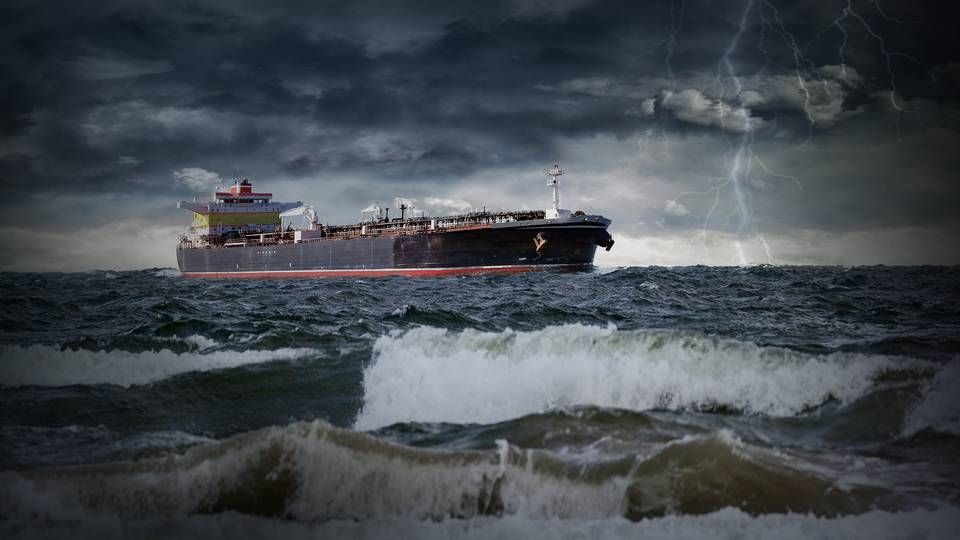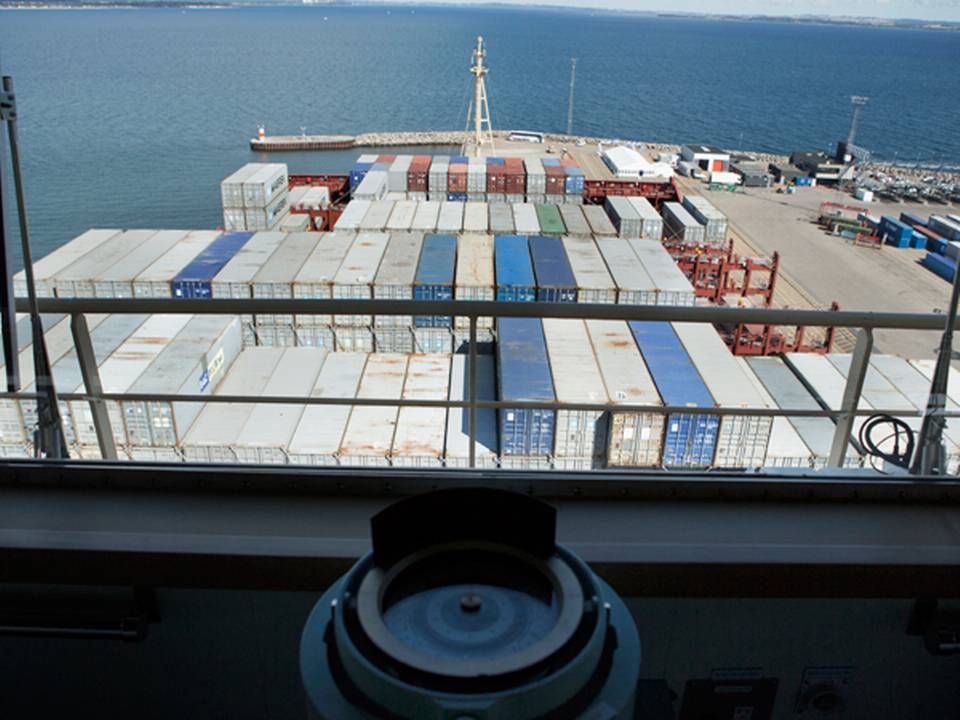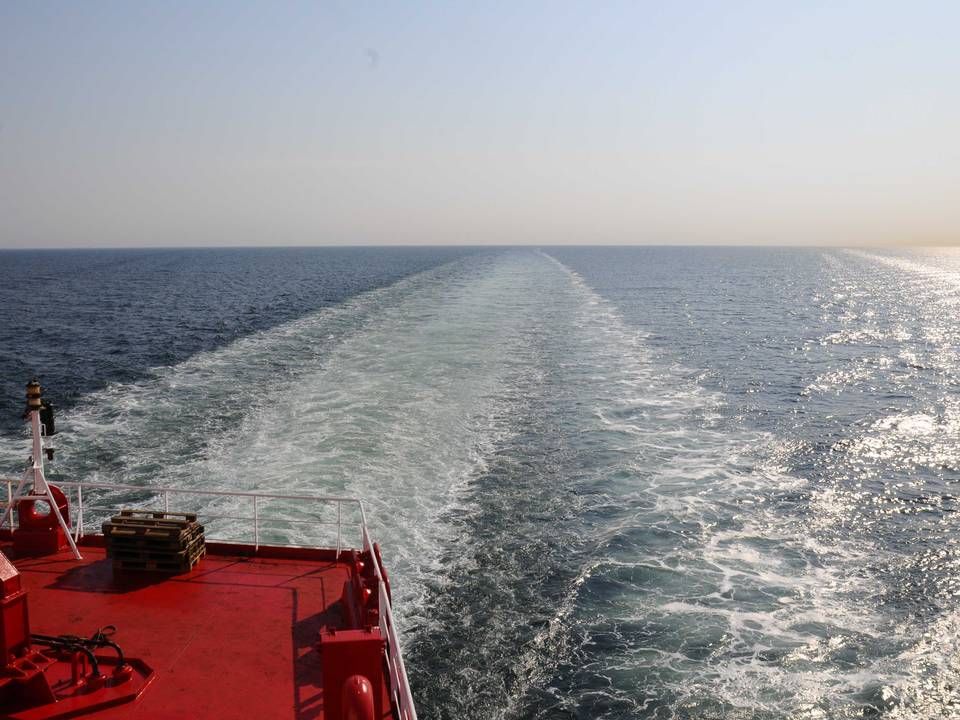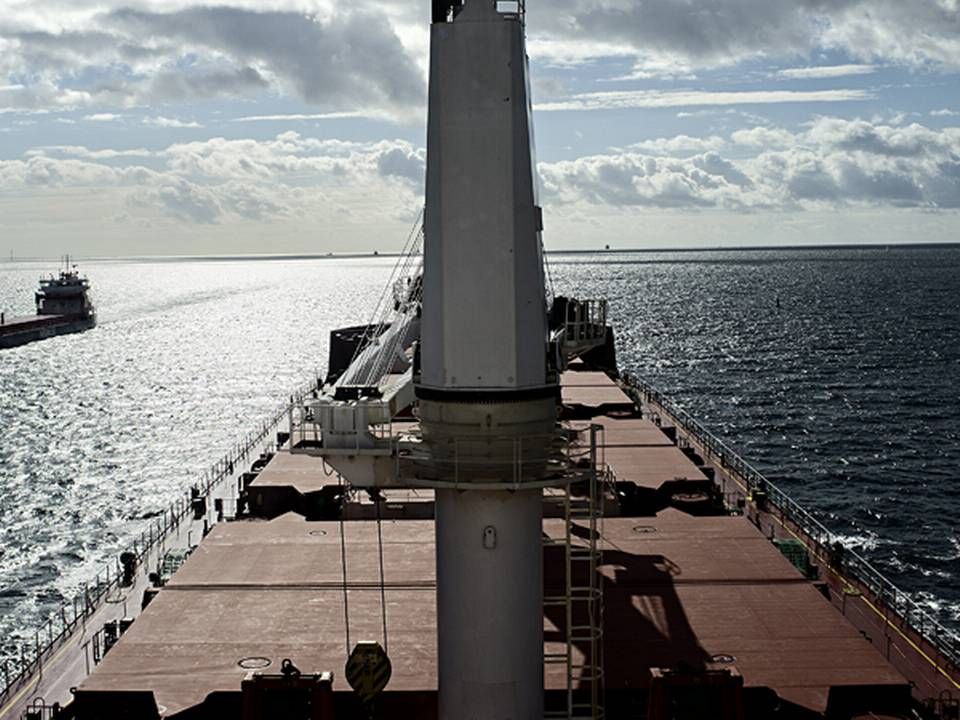ICS describes critical IMO report as "nonsense"

The International Chamber of Shipping (ICS) was one of the key targets for criticism in the report from London-based think tank InfluenceMap, which accused the body, along with other players, of deliberately delaying efforts to reduce shipping CO2 emissions.
The report emerged ahead of the crucial IMO meeting in late October scheduled to address how shipping, which was not included in the Paris Accord, can contribute to reducing CO2 emissions, and the report's fierce criticism focused on two distinct elememts.
First, it claimed that the industry has an unusually large influence on the IMO compared to the influence other sectors have on other UN bodies.
And second, this direct influence has resulted in delayed participation from shipping in the efforts to reduce CO2 emissions, and thereby the sector's lack of impact on work to slow down global warming.
Working against CO2 regulations
In addition to the International Chamber of Shipping, this criticism was also aimed at the two shipping associations Bimco and World Shipping Council (WSC). ShippingWatch has asked the authors to highlight some of the sharpest points of criticism, which the ICS responds to below. Among other things, InfluenceMap criticized the ICS for the following:
- Opposing the introduction of GHG emissions regulation until 2023 onwards (Proposal to Development of a road map to determine a possible IMO fair share contribution, IMO Marine Environment Protection Committee, August 2016)
- Opposing binding GHG emission targets from the International Maritime Organization (Response to reduction of GHG emissions from ships, Elements for inclusion in the IMO Strategy, May 2017)
- Opposing binding GHG emission targets from the International Maritime Organization (Joint response to further development of the structure and identification of core elements of the draft initial IMO strategy on reduction of GHG emissions from ships, September 2017)
- Not supporting raising the ambitions of the EEDI (Transcript of BIMCO statement at the International Maritime Organization, MEPC 70, October 2016)
- Directly advocating to policy makers to oppose operational energy efficiency standards for shipping (Response to Policy and Practical Issues that arise with Mandatory Operational Efficiency Standards, March 2015)
Below is the response from the International Chamber of Shipping:
"The recent report by InfluenceMap was a cleverly timed stunt, coinciding with a critical UN IMO meeting which continued the development of a comprehensive strategy for the reduction of the sector’s CO2 emissions.
This PR stunt was organised with the assistance of environmental NGOs, as part of what is otherwise their legitimate campaign to highlight the importance of cutting GHG emissions from international shipping.
ICS had never heard of InfluenceMap. Interestingly it seems it shares the same London address as a plethora of other climate related NGOs. It also made an appearance at the IMO meeting, with a representative embedded with the large Clean Shipping Coalition delegation. This is the umbrella group for various green NGOs which participate at IMO meetings, who enjoy the same opportunities to influence Member States’ discussions as industry trade associations such as ICS.
The InfluenceMap report provided an entertaining distraction for IMO delegates who were immersed in extremely complex negotiations. ICS was actually flattered that it is perceived to be so influential. If only this was true!
However, it is simply not in the interests of the industry to delay progress at IMO. The principal objective of ICS is to ensure that IMO remains in control by developing a credible GHG strategy. Otherwise the industry will be confronted with chaos.
If Member States fail to deliver a comprehensive GHG strategy that is suitably ambitious, the industry will be faced with a deluge of regional regulation. And not just from the European Union. In North America, for example, in the absence of robust global measures, individual U.S. States or Canadian Provinces will almost certainly seek to apply unilateral CO2 reduction measures to visiting ships, potentially creating huge market distortion.
The suggestion that industry participation at IMO meetings somehow hinders Member States from reaching agreements that will deliver lower CO2 emissions is total nonsense.
It is true that ICS does not support a binding cap on the sector’s total CO2 emissions, given that the future total emissions from international shipping will largely be determined by demand for maritime services, over which the industry has no control.
But ICS also knows that a legally binding cap will never be acceptable to developing nations who are also a major part of this IMO negotiation, something which the environmental NGOs seem to forget.
China and India, in particular, have made their opposition to a binding cap very clear in their written submissions to IMO. ICS has therefore said that it concurs with China and India, in order to provide them with the reassurance they need. This will be vital if they are to be persuaded to agree to the ambitious CO2 reduction objectives which the industry and other governments have proposed.
It is simply not the case that ICS has opposed the introduction of GHG emissions regulation until 2023 onwards.
The industry submission made in August 2016 (quoted by InfluenceMap) was actually instrumental in helping to persuade emerging economies to agree to the development of an IMO strategy in response to the Paris Agreement. But all that this submission suggested was that the development of ambitious CO2 reduction goals for the sector – which the industry was the first to propose – would need to take account of the results of the next IMO Greenhouse Study in 2019.
In subsequent submissions the industry has advocated that initial CO2 reduction objectives should be set by IMO immediately.
This approach is consistent with the ‘three step process’ (data collection, analysis, adoption of new measures) already agreed by IMO. The IMO ‘three step process’, by the way, had been promoted by ICS – with the support of the U.S. Obama Administration – as a means of helping nations, such as China and India, to agree to the adoption of a mandatory CO2 Data Collection System – the first such global system developed for any industry sector.
At the recent IMO meeting – as the InfluenceMap representative should have observed – ICS actually spoke in support of the United Kingdom and other nations that were seeking a more flexible approach towards the timelines to be included in the strategy, so that work on additional measures can begin as soon as possible.
ICS has fully supported the adoption of binding regulatory measures, such as the EEDI and the SEEMP, and is open to the consideration of further measures that could be adopted, consistent with the ‘three step process’, at any time from 2019. ICS has also accepted that the development of additional measures should be able to begin as soon as the initial IMO strategy is adopted in 2018.
With regard to further amendments to the EEDI, ICS is not opposed to consideration of a possible Phase 4 efficiency goal, beyond the 30% improvement already required by new ships built under Phase 3, or consideration of the possibility of moving the Phase 3 implementation date forward from 2025. All ICS has done is express caution about what might be technically feasible, without compromising safety of life at sea which must always be of paramount importance.
But moving beyond EEDI Phase 3 will be challenging for many ship types. The low hanging fruits of reducing optimum speed and making ships bigger have to a large extent already been picked. IMO cannot simply extrapolate future EEDI targets from past trends, especially if concerns about the implications of reduced engine power for safety and manoeuvrability are properly addressed – as IMO has now agreed to do.
Finally, ICS makes absolutely no apology for being totally opposed to the concept of mandatory operational efficiency indexing being developed for individual ships.
The industry’s concern is that operational efficiency indices do not accurately predict fuel consumption and CO2 emissions in real life operations. These will always vary greatly according to the voyage, due to differing ocean and weather conditions.
In tramp trades, in particular, the ship operator has no control over the nature of voyages which will vary greatly in character from month to month and year upon year. Fuel consumption in the North Atantic winter is totally different to the South Pacific summer.
There is a real danger that the use of such operational indices would lead to unfair penalties being applied to individual ships, creating serious market distortion and unfair competition.
Rather than responding to the so called ’evidence’ from InfluenceMap, ICS would prefer to be discussing how the industry is constructively seeking to help IMO Member States develop a credible CO2 reduction strategy that is genuinely ambitious but also realistic.
ICS is confident that IMO will deliver."
English Edit: Daniel Logan Berg-Munch
Shipping still a way off from final CO2 target
Shipping industry: We actively work for the environment
Here is the road map for the IMO's climate deal
New head of ECSA to break away from bad reputation in Brussels
Related articles
Shipping still a way off from final CO2 target
For subscribers
Shipping industry: We actively work for the environment
For subscribers
Here is the road map for the IMO's climate deal
For subscribers




















